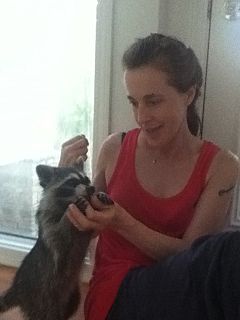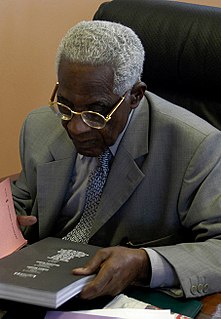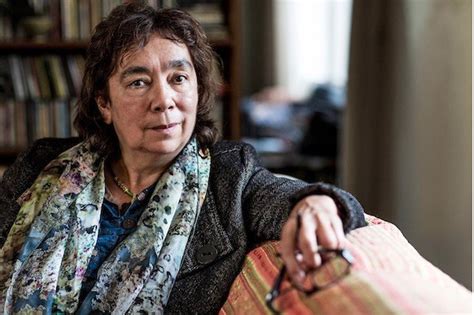A Quote by Naomi Wallace
I'm interested in the way that the language of labor has been suppressed in our culture, the way it has disappeared from our vocabulary and is never heard on stage. . . . I'm better at writing than I am at organizing [political action]. SLAUGHTER CITY is my small contribution. If it gives people a voice it is worth something. So often we forget what we are no longer hearing.
Related Quotes
I am very interested in writers from the Francophone world. I like Kamel Daoud a lot, for example. In "The Meursault Investigation" and "Zabor," he shows a passion for the French language, a very special way of writing that belongs to those who live on the other side of the Mediterranean Sea. It is language that connects us. It allows people there to cling to our history, our culture and sometimes also our values.
Maybe it's naïve, but I would love to believe that once you grow to love some aspect of a culture-its music, for instance -you can never again think of the people of that culture as less than yourself. I would like to believe that if I am deeply moved by a song originating from some place other than my own homeland, then I have in some way shared an experience with the people of that culture. I have been pleasantly contaminated. I can identify in some small way with it and its people.
The politics of language and the politics of writing really got to me. I've heard this phrase more than once now: this idea of the poetry wars, or the idea that people within the space of writing are at odds with one another or manipulating language to further one's political stance, manipulating language in ways that really felt dirty to me. All of these things worked their way into and through language for me.
We have heard projects with some of the writers, who we've been in business with for a long time at the studio, that we've heard as a studio - often, pitches that are still in their formation stage where we or the writers have wanted our input on developing them. We've probably heard more pitches with the network hat on. Certainly all of the outside pitches are that way, and many of the pitches that have been in great shape coming out of the studio we've heard from a network perspective.
Believe it or not, entertainment is part of our American diplomacy, it is part of what makes us exceptional, part of what makes us such a world power. Hundreds of millions of people may never set foot in the United States, but thanks to you, they've experienced a small part of what makes our country special. They've learned something about our values. We have shaped a world culture through you...in a way that has made the world better.
There are degrees of loneliness, ways in which the experience of loneliness deepens, becomes something like what we might call a way of life. This way of life is both what is most damaging to us as a culture, and, paradoxically, contributes to its richness. It may in the end be our lasting contribution to the life of our planet.
Our society offers little in the way of reeducation for those who have been torn away from their traditional culture and suddenly exposed to all the blandishments of mass culture-even the churches which follow the hillbillies to the city often make use of the same "hard sell" that the advertisers and politicians do.
Never stop. Never stop fighting. Never stop dreaming. And don’t be afraid of wearing your heart on your sleeve - in declaring the films that you love, the films that you want to make, the life that you’ve had, and the lives you can help reflect in cinema. For myself, for a long time… maybe I felt inauthentic or something, I felt like my voice wasn’t worth hearing, and I think everyone’s voice is worth hearing. So if you’ve got something to say, say it from the rooftops.
Too often the result of affirmative action has been an artificial diversity that gives the appearance of parity between blacks and whites that has not yet been achieved in reality...Preferences tend to attack one form of discrimination with another...Affirmative action encourages a victim-focused identity, and sends the message that there is more power in our past suffering than in our present achievements.






































